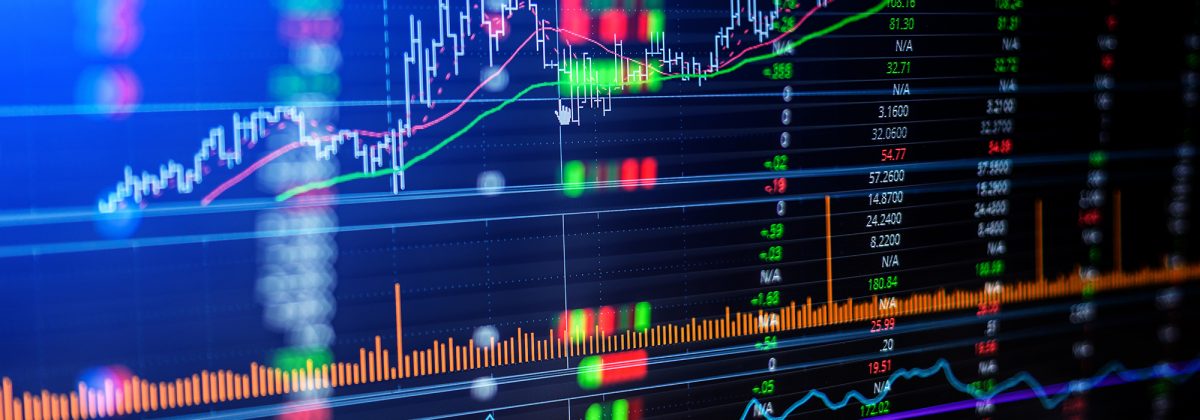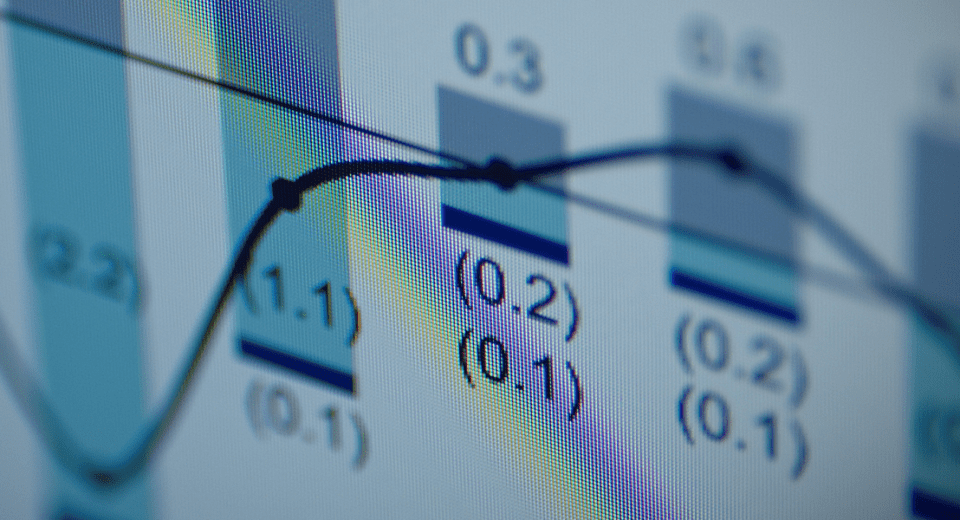MetaTrader 4 (MT4) is one of the most popular trading platforms, not only because of its robust trade execution speed and comprehensive market visibility, but also because of its vast collection of forex indicators for efficient analysis of price trends. Whether you are a novice or a professional trader, MT4 offers standard as well as custom indicators for all your trading needs.
The highly customisable and easy-to-use MQL4 programming language enables developers to create forex indicators, suitable for every trading style. Moreover, most of them are free for use. Here are 10 of the best free MT4 forex indicators that can help you make informed trading decisions.
1. Hammer/Hanging Man Indicator
These are candlestick-based patterns for identifying important reversal patterns. Hanging man is a bearish reversal pattern of one candlestick, generally found in the uptrend areas on price charts. The lower wick is much longer than the upper body and should be two times the size of the upper portion, in order for the pattern to be considered valid. Hammer, on the other hand, is a bullish reversal pattern, during market downtrends, signifying a potential trend reversal. This means that sellers were initially in control, but buyers reversed that trend to drive prices back up to near the high for the day.
2. MACD
One of the most versatile indicators, the Moving Average Convergence Divergence (MACD) tool shows the relationship between two price moving averages (MAs). It is one of the best trend following indicators, widely used by intraday and swing traders. The 26-day Exponential Moving Average (EMA) is subtracted from the 12-day EMA, which is the faster moving average. A 9-day EMA acts as the signal line, triggering buy and sell signals. The 9-day EMA is the slower moving average line. The faster moving average line is quicker to react to price changes. When prices move, this MA line will move quickly and crossover the 9-day EMA line. When this crossover occurs and the faster line tends to “diverge” from the slower line, a new trend formation is indicated.
3. Relative Strength Index (RSI)
Unlike the MACD, RSI is a leading indicator. It measures the ratio of upward price movement to downward price movement, and normalises the calculations to reflect trend strength in a range of 0 to 100. If the RSI is >70, the market conditions are said to be overbought; that is prices have increased more than market expectations. If the RSI is <30, it is considered a signal that the instrument is oversold, giving an indication that the prices might rise in the future. Traders usually consider this situation as a signal to buy. Readings of 70 and higher is considered an indication to sell.
4. Bollinger Bands
Bollinger Bands are volatility indicators, used to identify key support and resistance levels. These bands or channels widen and contract, depending on the extent of volatility in the market. There are 3 lines that make up the volatility channel: the central Simple Moving Average (SMA) line with default value of 20, the lower band (two standard deviations lower than SMA) and the upper band (two standard deviations above SMA). In a highly volatile market, the bands tend to widen and contract subsequently (squeeze) with decreasing volatility. Traders usually place entry and exit points near these channels, rather than exactly on them. Sell orders are placed in the upper band limit and buy orders near the lower band limit.
5. Change Percentage Indicator
Here, traders can specify a certain timeframe for past period analysis and the indicator will highlight the percentage movement of price from that point till the current level. The level is shown on the left-hand corner of the screen, giving an idea of the market trend movement over the last few bars. Although free, the Change Percentage Indicator is available exclusively on the Blackwell MT4 platform.
6. Stochastic Momentum Indicator
The Stochastic indicator is part of a cluster of oscillator indicators, like RSI and Commodity Channel Index (CCI). Its use in trending markets is different than that in ranging markets, which is why it is generally used by experienced traders. On any MT4 platform, there are two lines representing the %K and %D values, which have their own statistical formulae. By default, on MT4, the %K value is set at 5, but traders also use 14-period stochastic oscillators. The oscillator line is plotted on a fixed scale, with values ranging between 0 and 100. Values over 80 indicate an overbought market, signaling a short position. In case the value drops below 20, it indicates an oversold market, where traders can take a long position.
7. Money Flow Index (MFI)
The MFI is a volume indicator that helps traders find the supply and demand levels for an instrument. It looks into the price changes and tick volume on the charts, in order to ascertain whether money is flowing in or out of a forex asset. The time span of calculations is set by default at 14, and the values of MFI range from 0 to 100. If the value is lower than 20, the market is oversold, while a value of above 80 signals an overbought market.
8. Parabolic SAR (Stop and Reversal)
Parabolic SAR helps traders determine where a trend ends. It places dots and points on the chart, to indicate potential trend reversals. When the dots are below the candles, it is a signal to enter a long position and, conversely, when the dots are above the candles, it is a sell signal. This tool is best used in markets that are trending, and not in ranging markets. Parabolic SAR helps in deciding whether to close a trade.
9. Average Directional Index (ADX)
ADX measures the strength of an ongoing trend. It is an oscillator indicator, with values fluctuating between 0 and 100. A reading below 20 indicates a weak trend, while a reading above 50 signals a strong trend. ADX can be used to establish whether an ongoing trend will hold or whether a potential trend reversal is expected in the near future; thus helping traders to figure out when to close positions.
10. Fibonacci Retracement
This is an extremely versatile indicator, used to identify potential support and resistance areas. The indicator works on the principle that when price moves hugely in one direction, it retraces back to the previous price level, before moving again in the original direction. Fibonacci Retracement is calculated by taking two peak points on a price chart and then dividing the vertical distance by the key Fibonacci ratios. Once these levels are established, horizontal lines are plotted to identify potential support and resistance levels.
To get a deeper perspective on the functionalities of forex indicators on MT4, it would be wise to test them on a forex demo account before applying them in the live markets.
Reference Links
Blackwell Global, Babypips, Investopedia, ForexTrainingGroup.
Start Trading in 3 easy steps
1
Complete the Application Form
It takes just minutes for us to verify your identity and set up your account.
2
Download MT4 Platform
Download MT5 and trade via your desktop, mobile or tablet. No minimum deposit required.
3
Start Trading
Trade more than 60 products (Forex, CFDs & Commodities)





